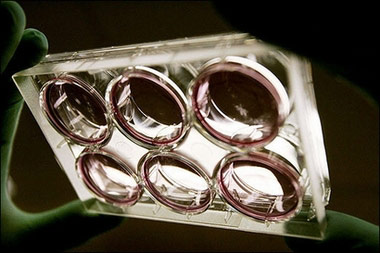Stem cell transplant promising for diabetes
(Reuters)Updated: 2007-04-11 09:28
In a small study, a treatment that included stem cell transplantation induced prolonged insulin independence in patients with newly diagnosed type 1, or insulin-dependent, diabetes.
In a statement, lead author Dr. Julio C. Voltarelli, from the Regional Blood Center in Ribeiro Preto, Brazil, called the results "very encouraging."
While the same approach has been used in other autoimmune disorders, the current study, to the author's knowledge, represents the first time the approach has been used in human type 1 diabetes.
In type 1 diabetes, a person's immune system attacks and destroys insulin-producing beta cells in the pancreas. Preserving beta cells is a key concept in the management of type 1 diabetes and in the prevention of its related complications.
Voltarelli's team tested the ability of high-dose immune suppression and stem cell transplantation to preserve beta cell function in 15 patients who were diagnosed with type I diabetes in the previous 6 weeks. All of them required insulin.
Stem cell transplantation involves the harvesting and treatment of a patient's own stem cells and then returning them to the patient via intravenous injection.
During follow up, 14 patients became insulin-free -- 1 for 35 months, 4 for at least 12 months, and 7 patients for at least 6 months. Two "late responders" were insulin-free for 1 and 5 months, respectively.
The therapy was well tolerated; the only severe side effects were pneumonia in one patient and endocrine dysfunction in two others.
While further study is needed, Dr. Jay S. Skyler, from the University of Miami, comments in a related editorial, "the time may indeed be coming for starting to reverse and prevent type I diabetes."
|
||
|
||
|
|

